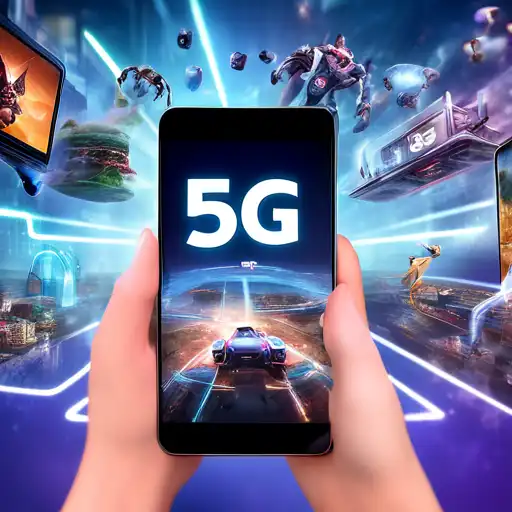The Dawn of a New Era in Mobile Gaming with 5G
The advent of 5G technology is set to transform the mobile gaming industry in unprecedented ways. With its ultra-low latency, high-speed connectivity, and increased bandwidth, 5G is paving the way for more immersive and interactive gaming experiences. This article explores the significant impact of 5G on mobile gaming, from enhanced gameplay to the rise of cloud gaming platforms.
Ultra-Low Latency: A Game-Changer for Mobile Gamers
One of the most notable benefits of 5G is its ultra-low latency, which drastically reduces the delay between a player's action and the game's response. This is crucial for competitive gaming, where every millisecond counts. With 5G, mobile gamers can enjoy smoother and more responsive gameplay, making it easier to compete in real-time with players around the globe.
High-Speed Connectivity: Enabling Richer Gaming Experiences
5G's high-speed connectivity allows for the seamless download of large game files and updates, eliminating long waiting times. Moreover, it supports higher-quality graphics and more complex game mechanics, enabling developers to create richer and more detailed gaming worlds. This means mobile games can now rival console and PC games in terms of visual fidelity and gameplay depth.
The Rise of Cloud Gaming on Mobile Devices
With 5G, cloud gaming platforms like Google Stadia and Xbox Cloud Gaming are becoming more accessible to mobile users. These platforms stream games directly to devices, eliminating the need for powerful hardware. 5G's high bandwidth and low latency make cloud gaming a viable option for mobile gamers, offering them access to a vast library of games without storage constraints.
Enhanced Multiplayer Experiences
5G technology also enhances multiplayer gaming by supporting more players in a single session without compromising performance. This opens up new possibilities for massive multiplayer online games (MMOs) and social gaming experiences on mobile devices. Players can now engage in large-scale battles or cooperative missions with friends and strangers alike, all in real-time.
Challenges and Considerations
Despite its benefits, the rollout of 5G poses challenges, including the need for widespread infrastructure development and the potential for increased data consumption. Mobile gamers may also face higher costs associated with 5G plans. However, as the technology becomes more accessible, these hurdles are expected to diminish.
Conclusion
The impact of 5G on mobile gaming is profound, offering faster, more immersive, and more interactive experiences. As 5G networks continue to expand, the mobile gaming industry is poised for unprecedented growth and innovation. The future of mobile gaming is here, and it's powered by 5G.
For more insights into the latest gaming technologies, check out our article on The Future of VR in Gaming.
